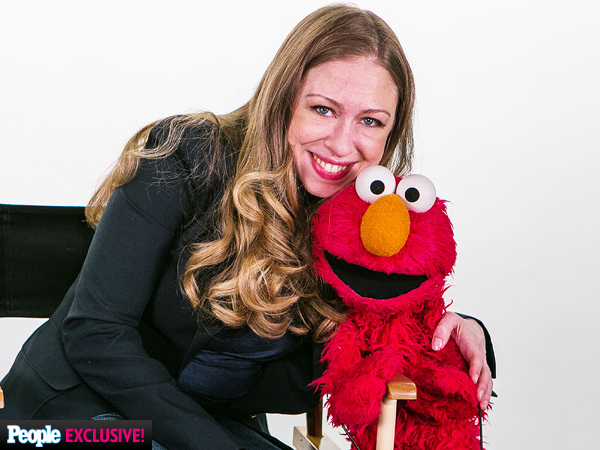Article and video From People >>>>
New York, NYNew York, NY — Too Small to Fail and Sesame Street launched today a new text-to-parents program in partnership with the free mobile health information service, Text4baby, to distribute research-based tips to new parents about the importance of talking, reading and singing with their newborn children. The service will reach Text4baby’s network of subscribers that has reached more than 820,000 parents nationwide at no charge to participants.Press Release
This new text-to-parents program of 'Talking is Teaching: Talk, Read, Sing’ is the first national partnership to use texting to deliver tips on early language development to parents of infants. Research-based tips developed by Sesame Workshop, the non-profit educational organization behind Sesame Street, will provide parents with specific ways they can promote their infants’ early language development and support Sesame’s mission to help all kids grow smarter, stronger and kinder. Each early language development tip sent out through Text4baby will also be paired with a link to an engaging and relevant video, also produced by Sesame Workshop. These videos, featuring real parents and children, as well as the Sesame Street Muppets, will model for parents how to engage in the specific behaviors promoted through the tips.
From meal time to bath time to bed time, text messages will span a wide range of topics aimed at helping parents find fun and meaningful ways to incorporate talking, reading and singing to their babies into their everyday moments and routines. For additional parenting resources, visit www.talkingisteaching.org andwww.sesamestreet.org/talking.
Originally announced at Clinton Global Initiative America, this partnership builds off the latest research about the power and potential of providing parents with key information to promote early literacy development through text messaging. Recent research has found that communicating with parents through mobile text can be a highly effective strategy for producing positive learning outcomes for children. A new study from the National Bureau of Economic Research found that San Francisco preschoolers whose parents received text messages with highly-specific tips on reading to their children or helping them sound out letters and words performed better on literacy tests than children whose parents did not receive such messages.
Beginning today, parents who have signed up for the Text4baby service will receive early language development messages beginning from their baby’s 9th week of development, and every other week thereafter until their baby turns one. The text-based tips will be made available in both English and Spanish. Too Small to Fail will also work with community partners and pediatricians in Tulsa, OK and Oakland, CA, as well as in other cities across the country, to encourage parents of infants to sign up for the service.
New parents can sign up for this service by texting BABY (or BEBE in Spanish) to 511411. To access even more early learning tips and information, visitwww.talkingisteaching.org.
New Year, Old (and New!) Routines
Singing songs at bedtime, eating dinner together every day, reading a special book to your baby or toddler—these are all routines that children enjoy sharing with parents and caregivers. But routines also play an important developmental role, because they help children develop stronger social and emotional health that can benefit them long-term.
According to a study published in the Journal of Developmental and Behavioral Pediatrics, routines can improve the social and emotional health of young children. Researchers found that story telling, shared meal times, singing and play routines doubled the odds of a child having high social and emotional health. Other studies have shown similar findings. Turns out that routines help children learn to trust and depend on others. This is a valuable asset for stability in relationships, and strengthens parent-child bonding time.
In addition, routines help babies and toddlers better manage emotions, since they know what to expect and aren’t as easily pulled into power struggles with parents and caregivers.
While family life can often be chaotic, there are many ways that parents can introduce routine into their children’s lives. Finding time to have regular meals together can be challenging for busy families, but this time together offers a great way for parents to build trust with children and encourage new vocabulary. Establishing a regular bedtime is also a great way for parents to help their children get the physical and mental rest they need, while providing a comforting way to regularly connect through bedtime stories or songs.
Resources for Sharing:
- This article from ZERO TO THREE explains how routines benefits babies and young children—as well as adults!
- Real advice for parents from this PBS Parents expert about creating routines for children, from birth through teenage years.
- This article from Michelle Howell Miller on Huffington Post shares how a bedtime routine benefits young children.
Video
Watch this childhood expert explain why routines are important for babies, toddlers and even older children. >>
Active Play is Good For Everyone!
Ever notice how some young children appear capable of generating enough energy through their movements to power a large city block for a day? Whether by running in circles, swinging their arms or jumping up and down in place for a long stretch of time, many babies and toddlers enjoy levels of physical activity that exhaust all but the most physically fit adults.
A young child’s instinct for movement and active play is an important one. In addition to helping them develop good habits and physical health, active play also helps them develop critical emotional and communication skills that will benefit them through childhood and into adulthood. Physical activity helps children understand how to interact with their environment—like how to throw a ball or hang from a monkey bar—and provides them with the self-confidence they need to actually do those things. And when children play with adults or other children, they learn how to communicate their needs more effectively and better manage their emotions. A research study published in Pediatrics in September 2014 showed that children who engaged in active play for at least an hour a day were better able to think creatively and multitask than other children who were not as active.
Like practicing an instrument, engaging in physical play builds muscle memory and helps children apply new skills towards other activities.
Parents and caregivers can encourage their children’s natural desire to play and move by starting early and getting active with them! Instead of always placing their infants in a sitting position, parents can try placing young babies on a towel on the floor so that they can strengthen their muscles and prepare to crawl or walk. Parents of toddlers can also practice throwing soft balls to them and encouraging them to throw it back, or by singing songs together like “Hokey Pokey”, which encourage dancing and following instructions.
Resources for Sharing:
- This article from ZERO TO THREE explains how physical play helps children learn, grow strong and become better communicators!
- Current research highlighting the importance of physical play to children can be found in this story by National Public Radio (NPR).
- Great ideas for encouraging physical play in toddlers in this piece from KidsHealth
Video
Watch Chelsea Clinton and Elmo enjoy a heart-to-heart about talking, reading and singing to babies, as featured in People Magazine! >>
Sunday, January 25, 2015
Hillary Clinton's Too Small to Fail: January Review
It was an active month for Too Small to Fail with Chelsea in the spotlight.


